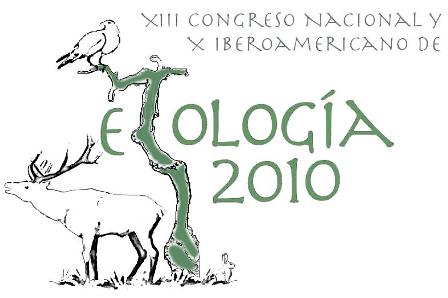As we have been doing since the 2006 edition, we took this opportunity to present the results of some of the latest projects currently being carried out: cognition, handedness, animal well-being and primate resocialization.
One of our prime objectives at this conference was to highlight the importance of ethology for us in two key areas: to help improve the well being of abused primates, and on the other hand provide ethoprimatological models to help explain the hominization process of the human being
Between the 21st and 24th of September the XIII National and X-Latin American Conference on Ethology took place in Ciudad Real.The Mona Foundation’s Investigation team presented a total of 4 discussions: 2 oral and 2 in panel, addressing cognition, handedness, animal well-being and primate resocialization.
As explained by Miquel Llorente, head of the Mona Foundation’s Research Unit “This conference serves as a national and international reference point in the field of ethology. It is an opportunity for us to showcase the work we undertake here, not only in the field of research, but in our efforts to improve the well being of the primates who come to our Centre. We look forward to presenting our work, and hope that the exchange of information between Spanish and Latin American ethologists will be of benefit to all, especially our animals.”
Within the scope of human evolution, since 2002, Mona has been working together with the Department of Prehistory at the Rovira and Virgili University and the Catalan Institute of Human and Social Evolution – IPHES, headed by Dr. Eudald Carbonell. In words by David Riba, a researcher for MONA and IPHES “It is certain that nonhuman primates are a living model to infer numerous aspects regarding the evolution of our species. More specifically, during this conference we will be presenting two of the key aspects of human evolution and cognition: one study addressing handedness and cerebral specialization, and a second study on social learning.”
As Llorente comments once again, “Ethology is a scientific discipline poorly understood. One of our goals at this conference is to demonstrate its importance for us in two key areas: in helping to improve the well-being of abused primates and on the other hand by using ethoprimatological models to help explain the humanization process of the human being.”
ORAL DISCUSSIONS:
– Social learning in chimpanzees (Pan troglodytes): Experimental evaluation through a manipulative task (open tube task)
– Manual laterality in spontaneous and experimental tasks on chimpanzees (Pan troglodytes) in naturalistic habitats.
DISCUSSIONS IN PANEL
– Effects of social deprivation on the process of rehabilitation of chimpanzees (Pan troglodytes): a case study.
– Assessment of spatial behavior as an indicator of social well-being in a group of chimpanzees (Pan troglodytes).
For more information:

